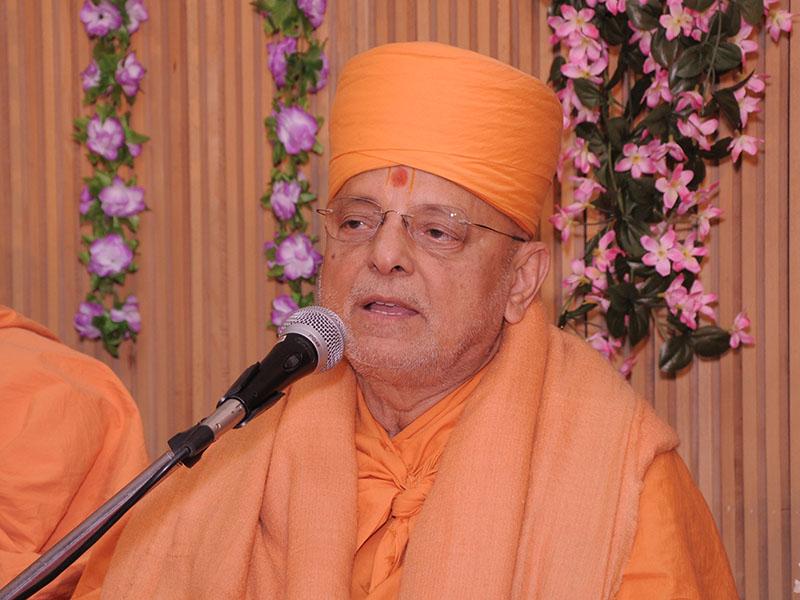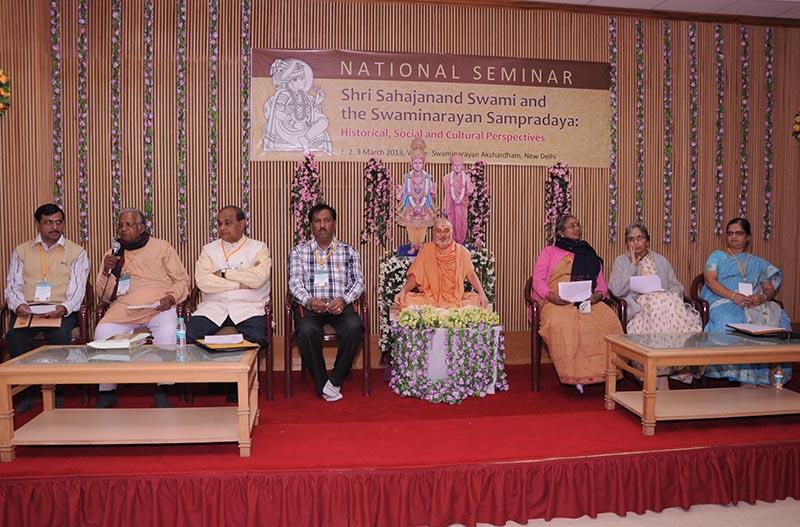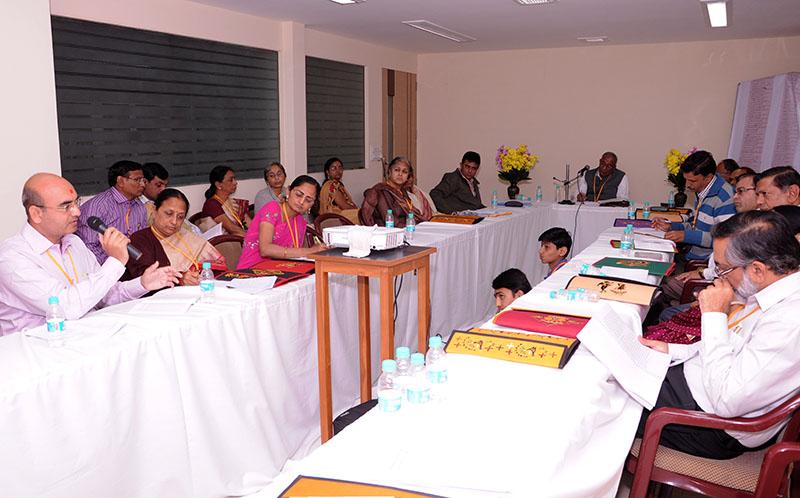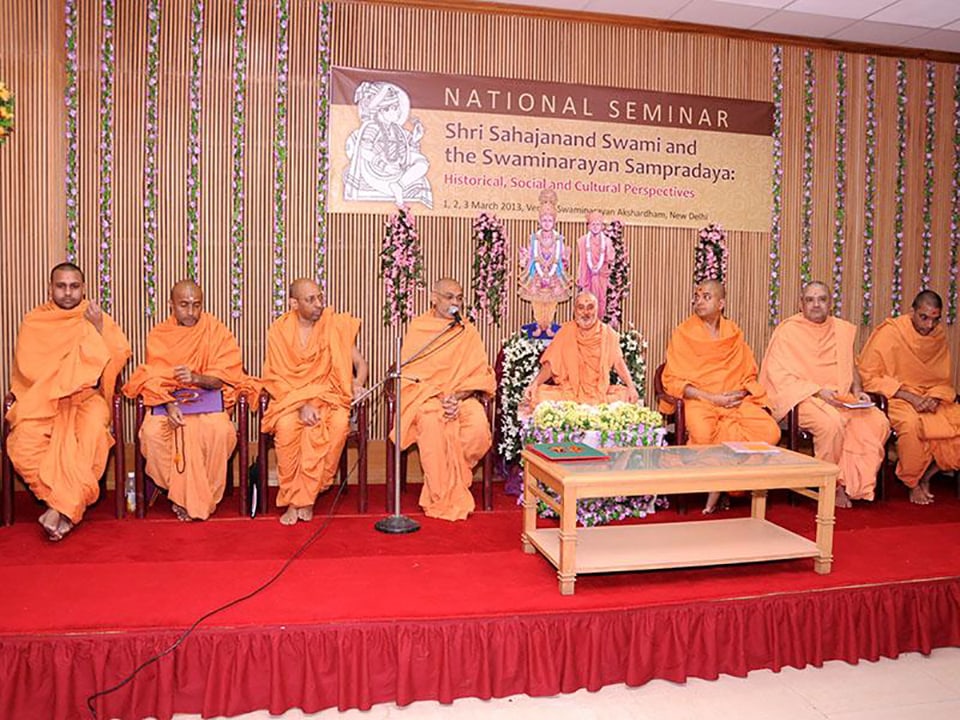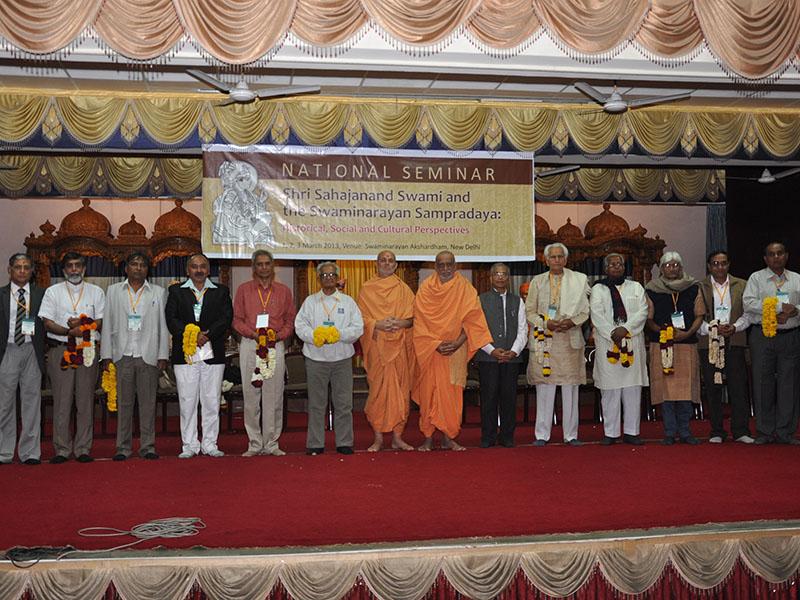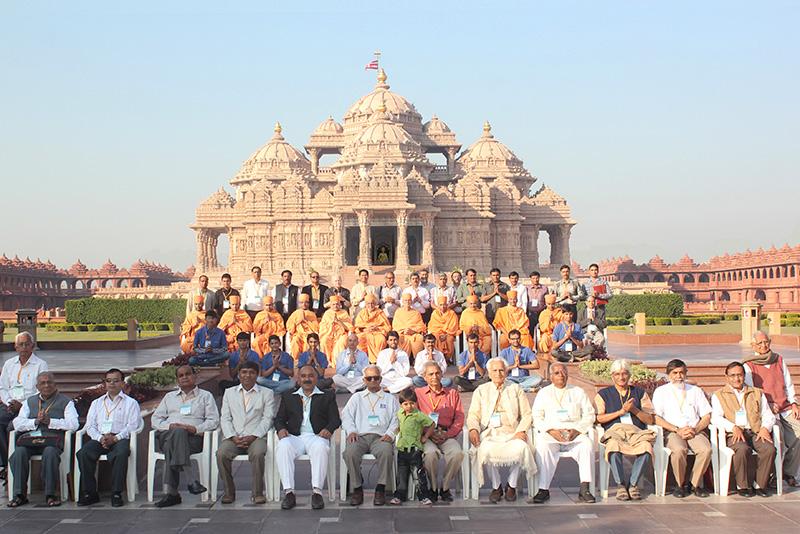Around 80 scholars from Gujarat, South India and New Delhi attended the ‘National Seminar on Shri Sahajanand Swami and the Swaminarayan Sampradaya: Historical, Social and Cultural Perspectives’ from 1 to 3 March 2013. The seminar was organized by the Gujarat Historical Society in collaboration with the B.J. Study and Research Institute, Ahmedabad and BAPS Swaminarayan Research Institute at Swaminarayan Akshardham, New Delhi.






National Seminar on Shri Sahajanand Swami and the Swaminarayan Sampradaya: Historical, Social and Cultural Perspectives
Date : March 1, 2013 - March 3, 2013
Organizer : BAPS Swaminarayan Research Institute
The seminar enabled scholars to analyze the life and work of Shri Sahajanand Swami from a broad variety of historical, social and cultural perspectives.
The topics covered included:
- Historical and cultural influences in Gujarat and India at the time of Sahajanand Swami.
- Sahajanand Swami’s travels throughout India as a child and teenager, and his stay in Gujarat.
- Sahajanand Swami and contemporary Gujarat, and its demography and geography.
- Sahajanand Swami’s philosophy and the resulting principles and values.
- Sahajanand Swami’s magnetic personality as a leader of the masses; his inspiring nature, lifestyle, manners, speeches, discussions, language and interaction with people.
- Sahajanand Swami’s reform of festival celebrations, social transformations and projects for the uplift of society.
- Foundation scriptures of the Swaminarayan Sampradaya: (1) Vachanamrut and (2) Shikshapatri.
- Sahajanand Swami as a moral and social reformer.
- Contributions of Sahajanand Swami to the uplift of the lower classes of society.
- Sahajanand Swami and British officers.
- Sahajanand Swami’s mandirs and their architecture.
- The life and work of Sahajanand Swami’s contemporary sadhus: Gunatitanand Swami, Muktanand Swami, Brahmanand Swami, Premanand Swami, Nishkulanand Swami, Devanand Swami and others.
- Sahajanand Swami’s contributions for women’s uplift.
- Medium for joy and peace: Scriptures of the Sampradaya, Swaminarayan worship,spiritual discourses and devotional bhajans.
- Experiences of sadhus of the Swaminarayan Sampradaya and their importance in light of social, literary and cultural changes.
- Swaminarayan Sampradaya and the poet Dalpatram.
- Swaminarayan Sampradaya’s growth and influence in the 19th century.
- Swaminarayan Samprdaya’s historical, moral, spiritual and cultural traditions: an assessment of the Sampradaya in reference to the 19th century.
- Swaminarayan spirituality and modern art.
Among the distinguished scholars who presented papers at the seminar were: Dr Makarand Mehta, Professor Emeritus, History, Gujarat University; Subhash Brahmabhatt, Principal, H.K. Arts College, Ahmedabad; Dr R.T. Savalia, Director, B.J. Study and Research Institute; Dr Rizvan Kadri, Associate Professor, Swaminarayan Arts College, Ahmedabad; Dr Thomas Parmar, Trustee, Gujarat Historical Society; Dr Jagdish Chaudhary, President, Gujarat Historical Society; Dr Hasmukh Patel, Secretary, Gujarat Historical Society; Dr Jyotindra M. Dave, Director, BAPS Swaminarayan Research Institute, New Delhi; Dr D.K. Hari, President, Bharat Gyan research institute, Chennai; Dr S. Suresh, Convener, Indian National Trust for Art and Cultural Heritage, Tamil Nadu Chapter, Chennai; and others. Papers were also presented by sadhus of the BAPS.
Other distinguished speakers at the Seminar included Padmashri Dr Vijay Bhatkar, renowned computer scientist and pioneer of PARAM supercomputers; Dr Radhakrishna Bhatt, Head, Sanskrit Dept., Mysore University; Dr Raghuvir Chaudhary, renowned author and poet, Shri Madhav Ramanuj, famous poet; Shri Chandrakant Sheth, scholar and poet and Dr G.C. Tripathi, Director, B L Institute of Indology, New Delhi.
The Seminar consisted of Inaugural and Closing Sessions, a separate session for the presentations by BAPS sadhus and five other sessions. The delegates also had an opportunity to enjoy the art, architecture, exhibitions and serene surroundings of Swaminarayan Akshardham.

